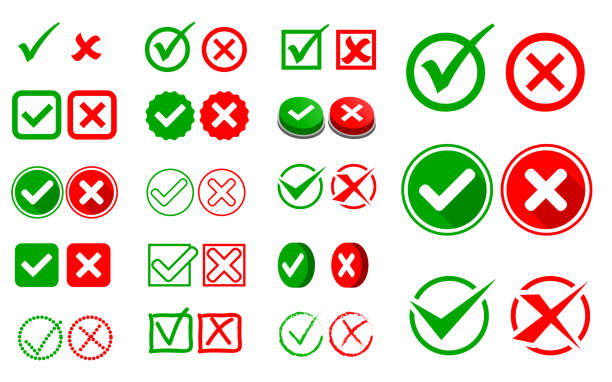In the world of language, few things can be as confusing as the difference between “affect” and “effect.” These two words, although pronounced similarly, have distinct meanings that can easily trip up even the most experienced writers. However, mastering this difference is crucial for clear and effective communication. Whether you’re writing a professional email, crafting a persuasive essay, or simply engaging in everyday conversation, understanding when to use “affect” and when to use “effect” can make a significant impact on your message. In this guide, we will delve into the nuances of these words, providing you with the knowledge and confidence to wield them correctly in any context. Say goodbye to the confusion and hello to a new level of linguistic mastery. Get ready to unlock the secrets behind “affect” and “effect” and elevate your communication skills to the next level.
Understanding the Meanings of Affect and Effect
To start our journey towards mastering the difference between “affect” and “effect,” let’s explore their individual meanings. Although they may seem similar at first glance, understanding their distinctions is essential.
Affect, typically used as a verb, refers to the influence or impact that something has on someone or something else. It is a word that describes the action of causing change or influencing an outcome. For example, “The heavy rain affected the game schedule,” indicates that the rain had an impact on the game schedule.
On the other hand, effect, often used as a noun, represents the result or consequence of an action or event. It is the outcome or end product. For instance, “The effect of the rain was a rescheduling of the game,” signifies that the rescheduling was the result of the rain.
While these definitions may seem straightforward, the challenge lies in correctly identifying which word to use in a given context. Let’s explore some examples to further clarify the proper usage of affect and effect.
Read More :Difference Between U Shank And T Shank Blades
Examples of Affect and Effect Used in Sentences
To better understand how affect and effect are used in practice, let’s examine some example sentences:
- The loud noise affected her concentration, making it difficult for her to focus on her work.
- The medication had a positive effect on his symptoms, alleviating his pain and improving his quality of life.
- His absence will surely affect the outcome of the project, as he plays a crucial role in its success.
- The new government policies had a significant effect on the economy, leading to a boost in employment rates.
- The teacher’s enthusiasm affected the students’ motivation, inspiring them to work harder and achieve better results.
- The unexpected turn of events had a profound effect on their relationship, leading to a breakdown in trust.
By examining these examples, we can see how affect and effect are used in different contexts. Affect typically refers to the action or influence, while effect relates to the result or consequence. Understanding these distinctions is key to avoiding common mistakes when using these words.
Common Mistakes When Using Affect and Effect
Even for seasoned writers, it is easy to fall into the trap of using “affect” and “effect” incorrectly. Let’s explore some of the most common mistakes and how to avoid them.
- Confusing affect and effect as nouns and verbs: One common error is using affect as a noun and effect as a verb. Remember, affect is typically a verb, while effect is primarily a noun. For example, “The rain affected the plans” is correct, while “The rain had an affect on the plans” is incorrect.
- Using effect when affect is needed: Another mistake is using effect when affect is the appropriate word. Remember, affect indicates an action or influence, while effect signifies a result or consequence. For instance, “The new policy will affect everyone in the organization” is correct, while “The new policy will effect everyone in the organization” is incorrect.
- Misusing effect as a verb: While effect is primarily a noun, it can also be used as a verb, but it has a different meaning. As a verb, effect means to bring about or accomplish something. For example, “She was determined to effect change in her community” is correct, indicating her intention to bring about change.
By being aware of these common mistakes, you can avoid them and ensure your communication is clear and effective. However, if you still find yourself struggling to distinguish between affect and effect, here are some tips to help you.
Tips for Distinguishing Between Affect and Effect
- Remember the definitions: Keep in mind the definitions of affect and effect. Affect refers to the action or influence, while effect signifies the result or consequence. By recalling these definitions, you can better determine which word to use in a given context.
- Consider the part of speech: Affect is primarily used as a verb, while effect functions mainly as a noun. Keeping this distinction in mind can help you choose the correct word when constructing your sentences.
- Think about cause and result: If you’re unsure which word to use, consider whether you’re talking about the cause or the result. If you’re discussing an action or influence, choose affect. If you’re referring to the outcome or consequence, opt for effect.
- Use mnemonic devices: Mnemonic devices, such as remembering that “affect” starts with an “a” like “action,” can aid in recalling the correct usage of these words. Find a mnemonic that works for you and use it as a mental reminder.
By applying these tips, you can enhance your understanding of affect and effect and improve your ability to choose the right word in any given situation. Now, let’s explore how to effectively incorporate these words into your writing and communication.
Using Affect and Effect in Writing and Communication
Now that we have a solid grasp of the differences between affect and effect, let’s explore how to use them effectively in your writing and communication. Whether you’re crafting an essay, composing a professional email, or engaging in everyday conversation, using these words correctly can elevate your message and ensure clarity.
- Determine the intended meaning: Before using affect or effect, carefully consider the meaning you want to convey. Think about whether you’re referring to an action or influence (affect) or a result or consequence (effect). This initial step will guide you in selecting the appropriate word.
- Proofread your work: After writing, take the time to proofread your work, specifically checking for proper usage of affect and effect. Careless mistakes can undermine the clarity and effectiveness of your communication. By reviewing your writing, you can spot any errors and make necessary corrections.
- Seek feedback: If you’re still unsure about your usage of affect and effect, consider seeking feedback from a trusted colleague, friend, or mentor. Another set of eyes can provide valuable insight and help you refine your writing.
By employing these strategies, you can confidently incorporate affect and effect into your writing and communication, ensuring that your message is clear and impactful.
Now that we’ve covered the fundamentals and usage tips, it’s time to put your knowledge to the test.
Practice Exercises to Reinforce Understanding
To solidify your understanding of affect and effect, let’s engage in some practice exercises. Read each sentence carefully and determine whether affect or effect should be used.
- The strong winds __________ the flight schedule, causing delays and cancellations.
- The CEO’s speech had a significant __________ on employee morale, boosting motivation and productivity.
- The team’s hard work __________ in the successful completion of the project.
- The sudden change in weather __________ the outdoor event, leading to its cancellation.
- The new marketing campaign had a positive __________ on sales, resulting in increased revenue.
Take your time to analyze each sentence and select the correct word. Once you have completed the exercises, compare your answers with the correct ones provided below:
- The strong winds affected the flight schedule, causing delays and cancell






